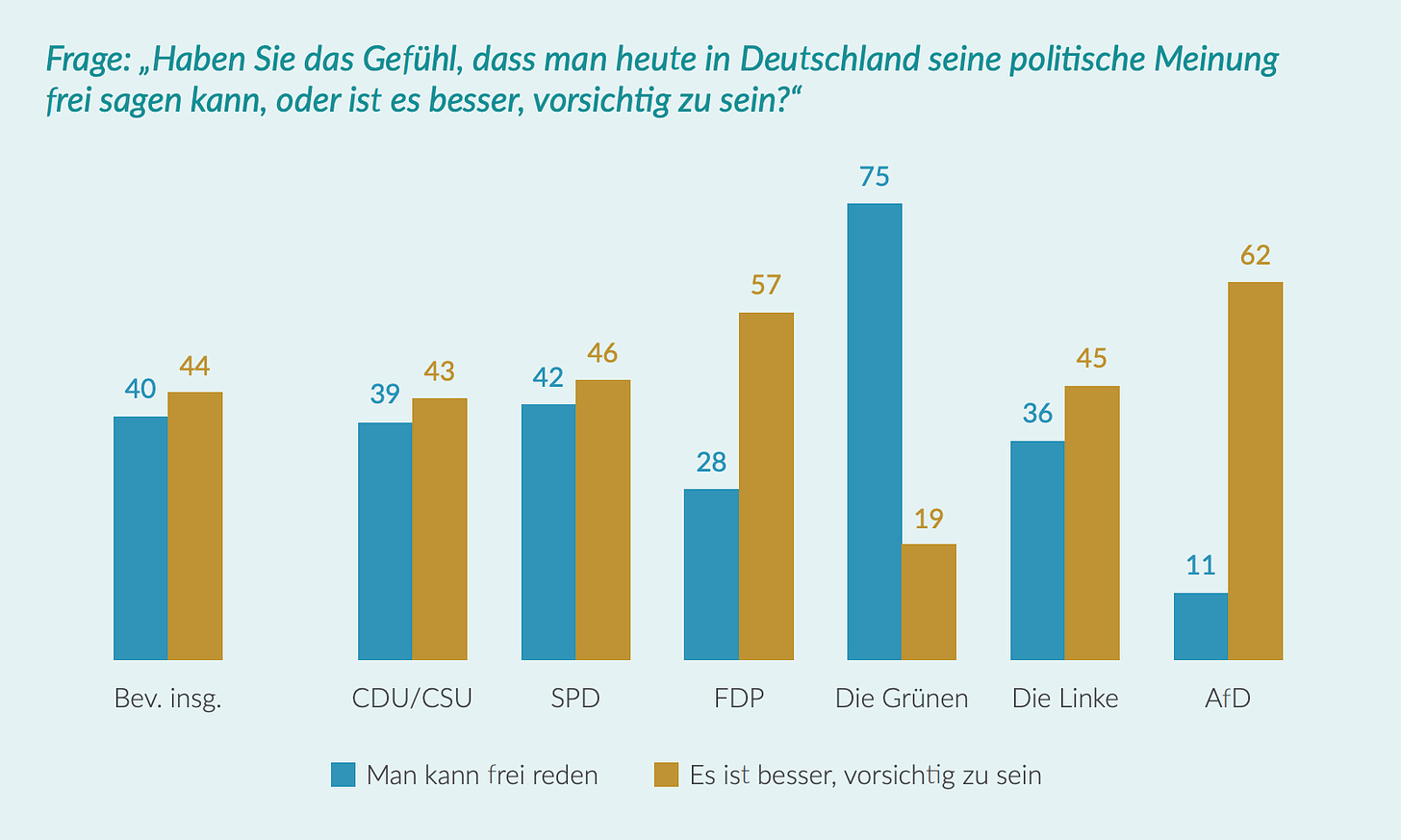Article by eugyppius.
Excerpt:
The impression of a closed and stifling discourse is present across the political spectrum. Only 39% of centre-right CDU voters feel free to express their views, but for Die Linke, or the Left Party (the successors of the East German SED), that number falls to 36%, and for AfD voters it is lowest of all, a mere 11%. A clear majority (75%) of Greens alone feel that they can speak their minds, and so here we learn who feels best represented by our present discourse.

No surprises lurk in the breakdown by education: 51% of those with university degrees or an Abitur feel their political expression is unhampered, while clear majorities of everybody else say they cannot speak their minds.
The historical perspective is sobering. The Federal Republic was only five years old in 1953; the Allied occupation and denazification were recent events, and even then Germans enjoyed a substantially greater subjective sense of political expression than they do today. This sense peaked under Willy Brandt during the Cold War, but has been in a state of decay since the fall of the Berlin wall in 1989. This would be good evidence in favour of Hans-Hermann Hoppe’s thesis, that Western liberal states rapidly lose their enthusiasm for principles like free expression in the absence of competition from rival systems.
Yet it was not the end of the Cold War, but rather the chancellorship of Angela Merkel that saw the most dramatic decline in free political expression. Specifically, Merkel’s strategy of “asymmetric demobilisation,” via which she sought to disarm the leftist opposition by adopting central elements of their political programme, had a very perverse influence. German voters and hence the politicians who appeal to them have always had pronounced conservative tendencies, while the media here as everywhere else lean to the left. Before 2005, politicians provided an important counterweight to the line taken by our press, but Merkel’s triangulations created a new system of soft political enforcement sustained by establishment politicians and mainstream journalism alike.
The consequence is a system that has placed all of us in thrall to the whims of an eccentric minority. The opinions which govern German society, as I’ve written many times before, are not those of most people, but rather of an increasingly insular, university-educated urbanite class, who are relatively affluent, who vote overwhelmingly Green and who constitute no more than 15% of the population. I doubt the old socialist countries of the Warsaw Pact were any different in this respect. More and more, it feels like we defeated communism only to recreate an equivalent system, which threatens to be much worse, insofar as its informal nature and soft asymmetrical methods confuse everybody and thwart opposition.